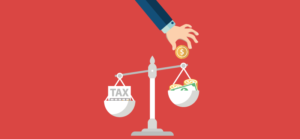Things to Consider for Your 2015 Capital Gains Tax
There are all kinds of investors in the world. Some are looking to make a quick buck by buying and then quickly selling stocks as soon as they increase in value. Other investors buy stocks with an eye toward the future, which means they are in it for the long haul.
In any case, anyone who invests wants to be successful at it. It’s a great feeling to buy stock in a company and see that stock increase in value. However, at some point if you plan on selling that stock and cashing in or your gains, you will have to give a portion of those gains to the taxman. What percentage you will owe will depend on the size of your gain and how long you have owned the stock.
The government wants investors to hold onto their stocks longer. To encourage this they have a lower tax percentage on stocks held longer than a year. Whether you’re a quick turnaround trader or a long-term investor here’s what you should be aware of in 2015 for your capital gains taxes.
First, generally all you need to know to determine your capital gains is the difference between what you paid for the stock and how much you sold it for. When you know that amount then you can calculate the tax. Your tax rate will depend on which bracket you’re in. There are three that apply:
- If your ordinary income puts you in the 10-15 percent tax bracket, then your long-term capital gains rate is 0 percent.
- If your ordinary income falls in one of the 25, 28, 33, or 35 percent tax brackets then your long-term capital gains rate is 15 percent.
- If your ordinary income is in the 39.6% tax bracket, then your long-term capital gains rate is 20%.
There are a few other caveats to remember. For high-income earners, there is an additional 3.8 percent surtax on net investment income. Also, you only pay taxes on the net of your capital gains, which can make a big difference if you sell more than one stock in a year. If you want to learn more about capital gains taxes then please contact GROCO for more answers. Click here or call us at 1-877-CPA-2006.
The True Value and Importance of Communication
Communication is extremely valuable in all relationships and in almost every setting. If you want to have a successful relationship with your spouse you must be able to communicate effectively with each other. If you want to have a positive relationship with your children, then you have to learn to communicate with them. Communication in…
The Numbers Don’t Lie-The Wealthy Are Paying More Taxes
More, more, more! So many people demand that the wealthy pay more taxes. ‘They must pay their fair share,” goes the battle cry. The question is what really constitutes a fair share? Truth be told, many of the nations wealthy pay a smaller percentage of taxes than most. However, that doesn’t mean they aren’t paying…
How Much Are U.S. Companies Paying in Corporate Taxes?
It’s no secret that the nation’s wealthiest individuals pay the most in taxes, but did you know that the United State’s corporate tax rate is also among the world’s highest? According to a report from Accounting Today, accounting and consulting firm UHY, says the U.S. corporate tax rate is 41.1 percent. That represents a much…
Succeeding Against All Odds
Just about every startup business or entrepreneur faces tough odds, which at certain points can seem almost insurmountable. Achieving success is always gratifying, but when you achieve success against all odds, that satisfaction can feel even greater. Being able to overcome huge odds and obstacles is never easy, but many people have what it…




